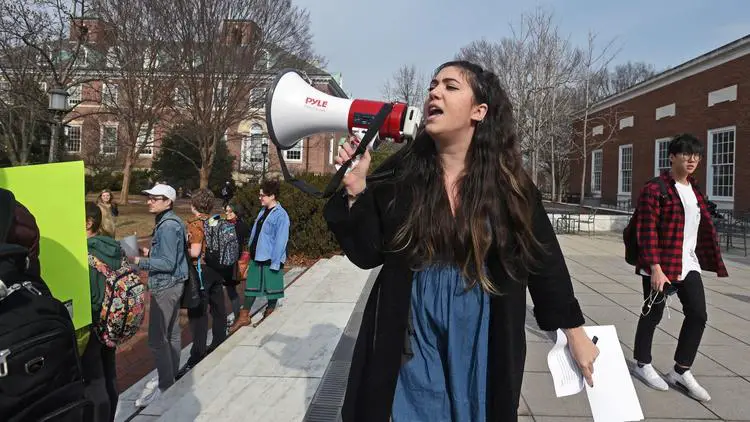Johns Hopkins University community members have continued to oppose the school’s move to establish its own police department and its contracts with the U.S. Immigration and Customs Enforcement.
On Wednesday, members of Students Against Private Police (SAPP) and the Hopkins Coalition Against ICE (HCAI) organized a rally to urge the university to reconsider its policies on creating a new police force and to cancel all of its contracts with ICE, the Johns Hopkins News-Letter reported.
Earlier this month, Maryland’s General Assembly approved a public safety bill allowing the school to establish its own police department. Prior to the bill’s approval, university faculty members voiced concerns about a campus police force being undemocratic and potentially exposing students to more risks.
“Johns Hopkins University knows better and knows that more policing does not equate with less crime, but that more policing actually causes gentrification, it causes more anxiety and public health concerns around communities, causes the extraction of wealth from communities and also normalizes state-sanctioned violence and terror against black and brown bodies across America,” Chris Bilal, a member of Students Against Private Police, told Democracy Now.
The student groups have also been protesting against the university through sit-ins over the past few weeks, with dozens of protestors occupying the campus administration building. Students have demanded that the university leadership donate all money received from ICE to Baltimore’s immigration defense fund.
“We’re very interested in how Hopkins presents itself as an ethical university and concerned with health and safety at home, but also its contracts with ICE,” Mariam Banahi, a Johns Hopkins graduate student participating in the sit-in, told Democracy Now. “The university response has actually been quite disappointing. We actually have—it’s basically a nonresponse.”
Various campuses across the country cut ties with ICE when immigrant children began being separated from their families after Attorney General Jeff Sessions announced a zero tolerance policy for people entering the U.S. illegally last April. The move drew sharp criticism from individuals across the country.
Meanwhile, the Hopkins administration has shown no intention of negotiating with the students and instead alleged them of disrupting events and services.
“The president and provost meet regularly with students from across the university, even when the issues raised are difficult and the views presented are in opposition to their own,” Hopkins said in a statement to the Baltimore Sun. “But they do not meet with students or organizations who are in clear violation of university policy.”
11 Arrested in Anti-ICE Protest Outside Northeastern University

